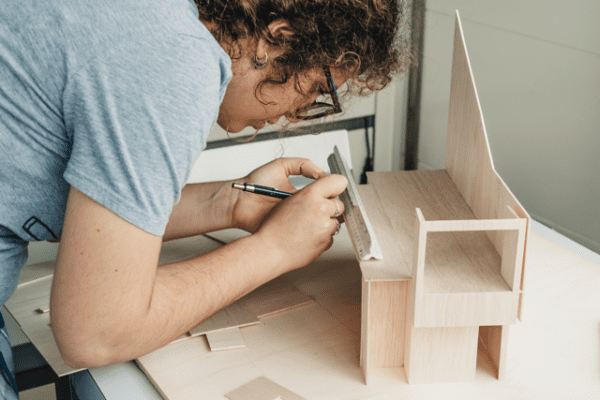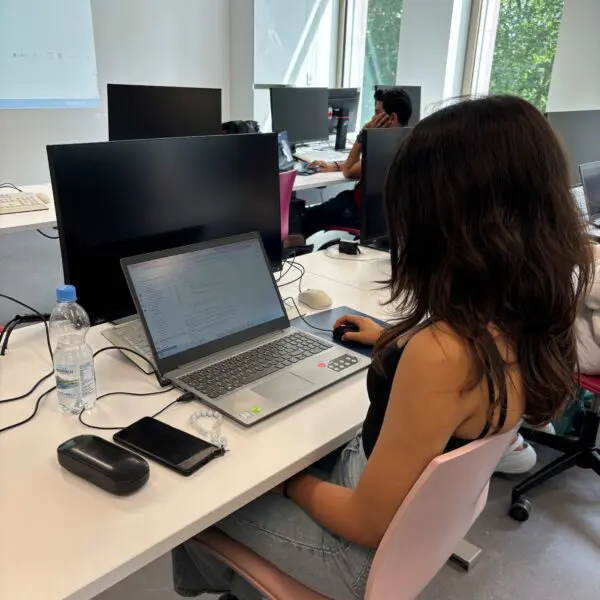
Berlin, Germany
Architecture in Berlin. A Walk through History
When:
26 July - 23 August 2025
Credits:
6 EC
Read more
Architecture
When:
03 August - 31 August 2024
School:
Institution:
Bauhaus-Universität Weimar
City:
Country:
Language:
English
Credits:
4 EC
Fee:
990 EUR

In this intensive course (3+2 days online, 10-day face-to-face in Weimar), you will learn more about the biological complexity of the urban habitat and how to design multiform networks that operate ecosystematically and engage social, cultural and environmental systems. You will collaborate with your peers to plan sets of nature-based solutions that can transform our cities and reduce the impact of climate change.
A renewed conception of the city as a complex natural ecosystem
During the two online weeks at 2 and 3 days, you will have the opportunity to attend online lectures from international professionals (architects, urban planner, landscape architects, researchers in urban studies) presenting their approach to contemporary urban challenges and engage in rich debates with those experts. Bibliography and case studies will be shared and commented on collectively to offer a clear understanding of ecological infrastructure. What is exactly a “green or an ecological infrastructure"? What are the challenges faced to develop green infrastructure in different urban contexts worldwide? How environmental, social and cultural systems are always intertwined and what key concept like “One Health” means?
An intensive workshop to design an ecological network that corresponds to the climate and urban challenges of specific sites
During the 10-day workshop in Weimar, you will engage in a collaborative process that leads to a set of analysis and interventions at different scales to improve the ecological performance of the selected site. This site can be found in the neighborhood of the workshop place (Thuringia), in your hometown, in contexts you are familiar to, or in places the teachers are experts in (Latin-America, especially Mexico). You will learn to apply approaches of landscape urbanism to design a multiform network where forces interact and accumulate in the long term to help cities become more resilient to environmental changes. This will lead your team to consider different scales, from the power of action of each citizen, to the building performances, to public space management and maintenance, to the planning of the city-region, to the fate of the primary forests and the other species.
Elodie Vittu, Aude Jahan, José Fernando Nieto Rueda
Students (bachelor from 4th semester and master) from disciplines related to architecture, urban studies, engineering, landscape, geography, sociology, biology, ethnography, cultural studies, environmental economics and others space-related disciplines.
Discover how to design multifunctional green infrastructure to help cities and citizens face climate change challenges.
Fee
990 EUR, The course fee includes: Orientation day Programme according to description Teaching materials Bauhaus Summer School ID card and a Welcome package Daily Lunch at the University Cafeteria (Monday - Friday) Internet access at the Bauhaus-Universität Weimar Free use of library Accompanying programme Excursions Free entrance to museums belonging to Klassik Stiftung Weimar Welcome dinner/BBQ
Fee
790 EUR, Students and BUW alumni
When:
03 August - 31 August 2024
School:
Institution:
Bauhaus-Universität Weimar
Language:
English
Credits:
4 EC

Berlin, Germany
When:
26 July - 23 August 2025
Credits:
6 EC
Read more

Nuremberg, Germany
When:
21 July - 01 August 2025
Credits:
0 EC
Read more

Antwerp, Belgium
When:
30 June - 04 July 2025
Credits:
3 EC
Read more